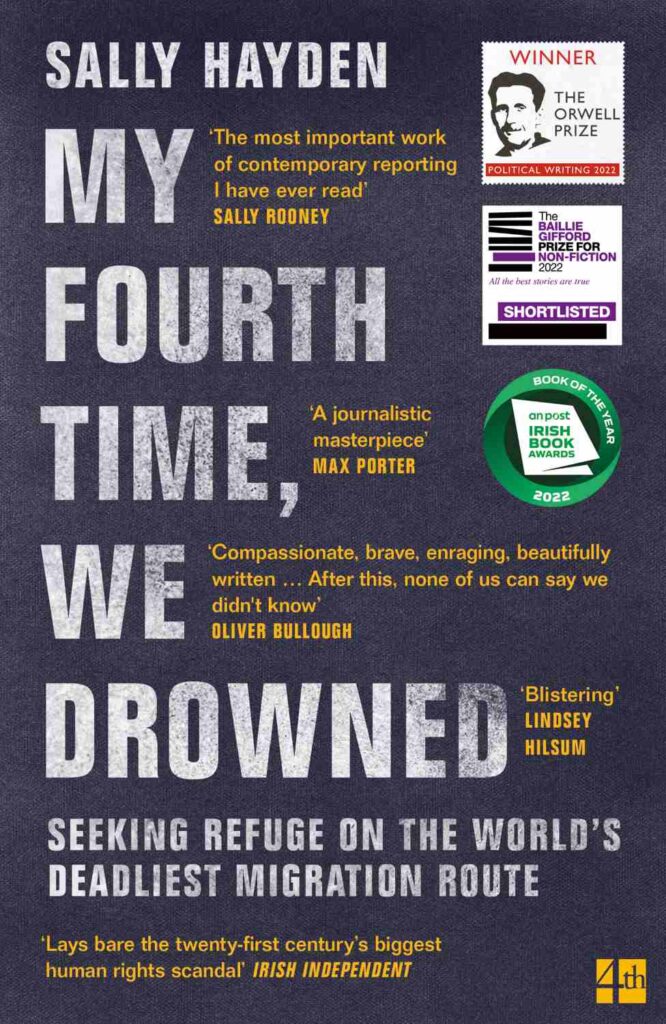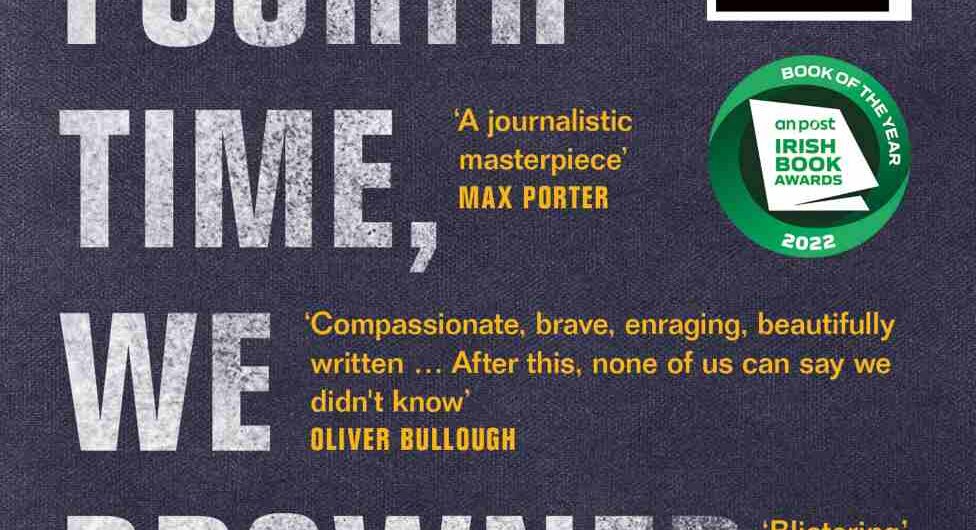In this unyielding exposé of the UN, EU, and the global multi-billion-dollar smuggling/human trafficking industry, Sally Hayden expertly interweaves her own experiences with those of the hundreds of refugees and asylum seekers who contacted her from within detention centres.
These centres appeared from 2011 as Libya’s popularity as an entry point into Europe continued to grow. The EU then began pouring millions of Euros into the Libyan Coast Guard to fund the detention centres. Intercepting boats before they reached European waters is a blatant, but legal, attempt at bypassing international law. In turn, refugees were held indefinitely while being subject to rape, starvation, and scarce medical care.
When Hayden first began receiving messages from these people, she described it as having “stumbled, inadvertently, on a human rights disaster of epic proportions”. This comes at the beginning of a perfectly managed balancing act between her own personal experiences. At one point, Hayden was even told by the CIA and MI5 that she would be in danger if she travelled to the detention centres.
Scattered throughout the book are quotes from the text messages Hayden received from refugees and asylum seekers throughout their journeys – from detention centres to social housing in ‘safe’ European countries, or deportation to their country of origin.
These texts challenge the global assumptions about the experiences of seeking asylum and in doing so, give life to stories that have been simultaneously sanitised and sensationalised in the media.
In these messages, Hayden leaves the names of specific detention centres and smugglers uncensored in an effort to acknowledge “the places where so many people suffered”. This is a transparency which continues throughout the pages of the book and is its biggest strength. Hayden does not hold back when recounting in order to make the book more agreeable to a wider audience. However, this does mean that many passages are emotionally difficult to read.
When Hayden has the opportunity to meet some of the people that she has been in contact with for years, their conversations engage the reader in a process of bearing witness – there is nothing anybody can do to change the past except ensure that it isn’t forgotten or repeated.
The writing style is exactly what you would expect from a highly decorated journalist; it portrays the facts and reflections on the seriousness of the topic, through a combination of cold, unadorned language and interspersing powerful, emotive prose. Both work together to reinforce the real lives behind the statistics.
Hayden tells stories that nobody should have to tell – but she does it with such command that you cannot help but turn the page.
In doing so, she sets the benchmark for reportage on events that are both factually complicated and emotionally fraught. This book should be essential reading for all journalists, politicians, and anybody working with refugees. It confronts stereotypes, misinformation, and institutional failings while keeping the agency and individual experiences at the forefront of the conversation.
Despite the book recalling events that took place from 2018 to 2022, the message is unfortunately still relevant – particularly in relation to current events in Palestine. One of the most pressing issues facing the Gaza Strip is the problem of accessing humanitarian aid containing essential medical supplies as well as food and water. Hayden deconstructs the utility of international aid organisations, such as the UN, and the public image that they have constructed for themselves and does not exclude high profile humanitarians from her pledge of transparency.
My Fourth Time We Drowned is an essential read for those wanting to cut through stereotypes and populism to understand the refugee crisis at its complicated and emotional core.




